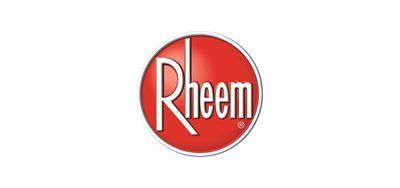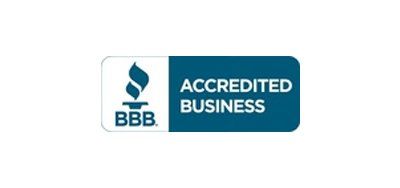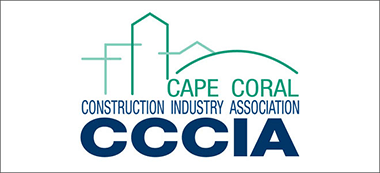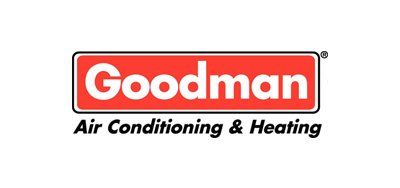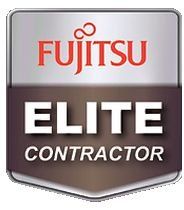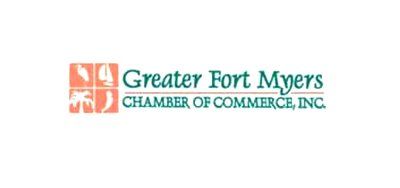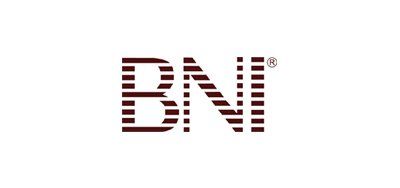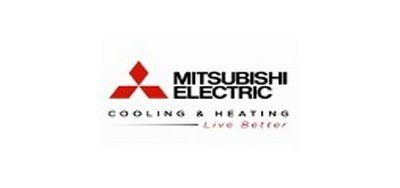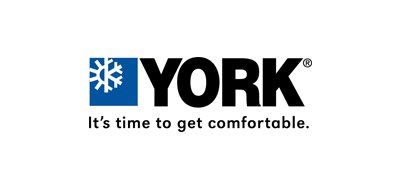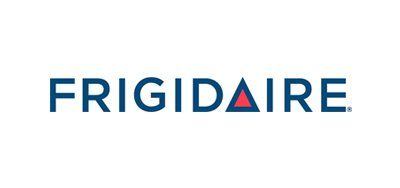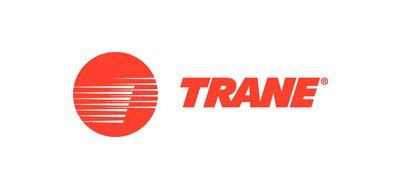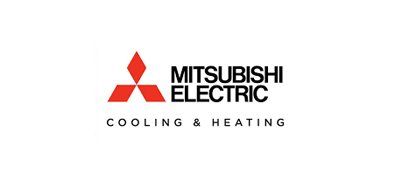Have AC Questions? We Have the Answers From the AC Experts
Read the FAQs Below to Get All Your HVAC Questions Answered
As a BBB-accredited business, Coolair is your go-to solution for all your HVAC needs in Lee, Collier, and Charlotte counties. We have provided satisfactory results to a loyal customer base of 30,000 since 2001. We'll listen carefully to your needs, provide honest suggestions, and deliver results with integrity. Discover all that you need to know about your residential or commercial HVAC system with the FAQs below, or call
us to learn more.
- Should you shut off your air conditioning when you're not at home or during the night?
- Should you shut off your air conditioning during a thunderstorm?
- How regularly should you have your air conditioner checked?
- How long will an air conditioner last?
- What does "high-efficiency air conditioning" mean?
- How much can a "high-efficiency" unit save you?
- Why should you protect yourself with a Preventive Maintenance Savings Agreement during the warranty period?
- How often should a filter be replaced, or cleaned (if washable)?
- Is your air conditioner powerful enough?
- Why is there a burning wire smell when heat is turned on for the first time?
- Which air conditioner is the best?
- How long will Freon® last?
1. Should you shut off your air conditioning when you're not at home or during the night?
No. Instead, raise your thermostat by a few degrees. This will allow your air conditioner to recover quickly when you return, saving energy. This can also be achieved by using a programmable thermostat.
2. Should you shut off your air conditioning during a thunderstorm?
Yes, air conditioners are thermally protected, but it is better to be on the safe side. If you are interested in additional protection, we carry primary surge protectors and time delay switches to help you stay safe.
3. How regularly should you have your air conditioner checked?
Twice a year is the general recommendation by licensed technicians, Florida Power and Light and Lee County Electric Coop. However, your air filters should be changed more often depending on the number of people and animals in your home and your specific environmental conditions.
4. How long will an air conditioner last?
How long a unit will last is determined by its use and environment. In Florida, air conditioners deal with a very demanding environment. With normal use, a typical air conditioner will last for 8-10 years or more, according to most manufacturers, though coastal homes may fail a little sooner. However, with the semiannual service provided by our Preventive Maintenance Savings Agreements, you can expect yours to last longer.
5. What does "high-efficiency air conditioning" mean?
A high-efficiency air conditioner is a unit that can deliver more BTUs (British Thermal Units) of cooling than a "standard" air conditioner. This is represented by its S.E.E.R. (Seasonal Energy Efficiency Ratio). The higher the unit's S.E.E.R., the more efficient that the air conditioner is. In order to achieve optimum efficiency, you need to have a condenser (Outside Unit), as well as an air handler, which is typically inside the unit.
System sizing and proper installation are critical to energy efficiency and home comfort. You need to have a “matched system” which means your air handler and your condensing unit are properly sized to work together. It’s important to use a qualified contractor who uses Manual J or an equivalent load size calculation tool to determine your cooling and heating requirements. Ceiling height, windows, shading and even home foundation all have a part in determining the right fit for your cooling and heating needs.
6. How much can a "high-efficiency" unit save you?
Lots! Modern units have a minimum S.E.E.R. of 14.0 and can go up to 20.0 and beyond. Contrast that with the standard equipment installed during the 1980s which has a S.E.E.R. range of only between 6.0 and 9.0, and you can see where the savings come into play. Many times an owner will get between a 30% and 50% return on investment from replacing an older unit with a high-efficiency one. If you're interested in finding possible savings, please contact us to see about scheduling a system check with one of our technicians.
7. Why should you protect yourself with a Preventive Maintenance Savings Agreement during the warranty period?
A unit's manufacturer warranty will ONLY cover its operating parts. It does not cover things such as dirty filters or other items caused by lack of maintenance. A manufacturer warrantied part may replace the part, but does not cover the labor charges for a contractor to install that part. That can also be costly.
Call Coolair today and learn about our exclusive labor warranties offered with new systems.
Closing vents in your home is typically not a good idea. This throws off the air balancing and causes your relative humidity to rise, causing you to be uncomfortable while saving you only a negligible amount.
8. How often should a filter be replaced, or cleaned (if washable)?
Anytime it's dirty. Your air filters should be changed more often depending on the number of people and animals in your home and your specific environmental conditions. You should check it frequently to determine if it needs to be cleaned weekly, monthly, or semiannually.
9. Is your air conditioner powerful enough?
While there is no "rule of thumb" for determining what you need, feel free to
contact
us. We can help you ensure that you get an air conditioner that is sized just for you.
10. Why is there a burning wire smell when heat is turned on for the first time?
Heat strips will give off a burning smell when first turned on due to dust that has collected when not in use.
11. Which air conditioner is the best?
Coolair deals with all major brands.
Call
us, and we'll perform a complimentary energy calculation on your home to help you determine which unit is the best fit for your needs.
12. How long will Freon® last?
Freon® will last forever! Refrigerant is only lost through leaks in the system. Should a leak form, it should be repaired as soon as possible, as refrigerant is becoming more and more expensive.
As of July 1, 1992, it has become a Federal offense to vent refrigerant into the atmosphere. As an environmentally safe company, we're able to recover your refrigerant so that it does not make its way into the atmosphere. Please feel free to contact
us for a brochure for more information.
Many air conditioners and heat pumps currently sold use R-22 as a refrigerant. However, emissions of R-22 are considered by experts to be a significant factor in depleting the ozone layer, which protects humans and animals from harmful rays from the sun. You now have the option of asking for an air conditioner or heat pump that uses a more efficient, more environmentally safe refrigerant called 410A, or R-410, when purchasing a new system for your home.
Our Seven-Step Formula to Avoid Being Ripped Off by Dishonest or Incompetent Air-Conditioning Contractors
Following the seven steps outlined in this guide will save your time, worry, and money the next time you need to hire an air-conditioning / heating contractor.
Step One: Do I Need a New AC System?
This is a very important first step to take in determining if you are in need of a new AC system. First, you must determine the age of your unit. Florida Power & Light reports that the lifespan of a Florida AC system is 7 – 9 years.
That does not mean your AC unit has to be replaced, but it does mean that you can expect it to be showing signs of its age and you should consider your return on investment (ROI) when deciding to invest in a repair or replacement for dependability, efficiency, and warranty. When you’re convinced that it’s time for a new AC system, move to step two.
Step Two: Who Do I Call for Estimates?
Now that you've determined that you need a new AC system, where do you start? I suggest that you get two or three estimates for a new unit. Only consider licensed and insured companies, which Coolair is (with a customer base of over 30,000 customers).
We're available to give you a FREE
estimate and provide you with a detailed proposal with property appraisal research and energy load calculations in order to give you very specific and accurate information to assist you in making an educated decision. After you've received your estimates, move on to step three.
Step Three: What Does My Estimate Say?
You'll be surprised at the variations your estimates will have. Whether they're called estimates, proposals, or bids, they should be in writing and legible to the customer. If you can’t read it, toss it. You'll need to spend some time on this step. This is where you determine what kind of AC unit you want.
When evaluating your bids, here’s what you will need to look for: first of all, can you understand what is written? Are there specific terms explaining exactly what is to be done and at what price? If the details are not spelled out, now is the time to clarify what they are.
We've all heard the expression: comparing apples to apples. This especially applies to shopping for a new AC system. Be sure your contractor has done their homework in assessing your specific home heating and cooling needs. Outdoor shading, windows, ceiling height, number of residents, square footage, the direction your home faces - all of these things play a real role in determining the size of your unit.
There are various SEER ratings (seasonal energy-efficiency ratings) that will make a difference in your energy usage. Ask if you qualify for any rebates or consumer specials. Make sure there are no hidden fees. Coolair will never have hidden costs.
Check out manufacturer warranties, and (just as important) labor warranties and maintenance schedules. Ask for an assessment of your duct systems at the same time. You may get the right-sized unit and later realize that your duct system is not adequate to handle the air flow. Coolair does a complete system checkup and advises you of options with no pressure. After reading your bid and whatever literature the technician has left for you, you need to determine which proposed AC unit best fits your particular needs. Be sure to compare apples to apples.
The lowest cost bid may not be your best deal. Consider cost, quality, service, and warranty - all the components that will bring you the best experience and outcome. "The bitterness of poor quality remains long after the sweetness of low price is forgotten." When you’ve reviewed all the bids, move on to step four.
Step Four: How Do I Choose the Right Contractor for Me?
This is probably the toughest step of all, but if you follow a few guidelines, you won’t have any trouble finding the right contractor. Always question your contractor; almost interrogate him. Any reputable contractor will be happy to answer any and all questions to satisfy a customer. If you find that he is being vague or gets irritated by your questions, you won’t want him working on your AC system.
What questions should you ask? Here are a few that will help you with your decision.
1. How long have you been in business at your present location? The reason you want to know this is that they could have been doing AC business for 20 years, 19 of those years working for their uncle, and only the last year as their own business. I’m not saying you won’t get a good job, but you’ll want to know this. Coolair has been a registered corporation since 2001.
2. What associations do they belong to? Are they registered with the Better Business Bureau, Consumer Fraud, National HVAC organizations, etc.? This builds credibility.
3. Can you refer me to some of your recent customers? Get names and phone numbers and call them. Again, a reputable company should not mind your inquiries. If they're reluctant or can’t provide you with this information, look for another company.
4. There's no such thing as a stupid question. Ask your own questions; don’t be shy, especially when you're on the verge of spending several thousands of dollars. Use good judgment and you’ll do just fine. After all, you’ll want to have a good relationship with the company you chose. You'll begin realizing the value of service from the date of installation throughout the life of your system. Be sure the company you do business with will be with you throughout this entire period. When you're satisfied that all your questions are answered, let’s go on to step five.
Step Five: Awarding the Contract!
When you’ve decided who will do your work, call the company of choice and let them know you have chosen them and tell them why; they will love to hear it. The company will ask you to agree to the terms and then choose the various options and installation date. At this point you’ve basically put your trust in this particular company to perform the contracted work. It's now up to the company you’ve chosen to get the job done right.
Step Six: What Can I Do to Help During The Project?
Be available to welcome the installation crew and allow them the time to properly install your unit. Feel free to ask questions, and ask to understand the operations and what to expect. Ask, if you don't know, how to use the thermostat and what to expect, how often to change filters, and any other question you may have on your mind. Technicians should always offer to show you all the features and benefits of your new system.
Step Seven: It's Time to Get Checkbook Out, or Is It?
Hopefully, all your hard work and preparation has paid off. Everything has gone well and your new AC system looks and works great. Now it's time to go over your job and make sure it's 100% complete.
Here’s your checklist:
- Check the cleanup. Walk around the installation area and look for any debris. Coolair takes before-and-after pictures and would be happy to share those with you for your files.
- Units need to be registered after installation in order to take advantage of the full warranty. Without registration, a manufacturer's 10-year warranty becomes a 5-year warranty. Coolair will also register your new unit for you to ensure that you get the full manufacturers' warranty.
- It is the homeowner’s responsibility to be available and see that the unit is inspected by local governmental compliance agencies. Coolair will consult you for a convenient time for you to be home to meet the code compliance permit inspector and will set up that appointment for you.
- Coolair will also mail you a certificate of your labor WARRANTY.
- The unit specifications and manufacturer warranty papers will come with the unit and will be left with you at installation. The registration of your warranty will be completed after installation and mailed to you.
- After installation, any balance due will be collected by the installation team leader. If you prefer, you may call in payment directly to the company as the install crew is wrapping up.
Summary:
There you have it! We sincerely believe that if you follow the seven steps we've outlined, you've done all you can to avoid being ripped off by a dishonest, unlicensed, or incompetent HVAC contractor. That being said, unforeseen things can still go bad. Life’s funny like that. But I'll tell you this: if you do these things, you’ll be head-and-shoulders above someone who signs up with the cheapest bid or a salesman who seemed like such a nice guy. Don’t be a victim. You're the captain of your own ship, or in this case, of your own home. Be smart and be safe.
“It is unwise to pay too much, but it is worse to pay too little. When you pay too much, you lose a little money..... that is all. When you pay too little you sometimes lose everything, because the thing that you bought was incapable of doing the things it was bought to do. The common law of business balance prohibits paying a little and getting a lot.... it cannot be done. If you deal with the lowest bidder, it is well to add something for the risk that you run. And if you do that you will have enough to pay for the something better”
- John Ruskin (1819 - 1900) “Pay lots, cry once. Pay little, cry twice.”


